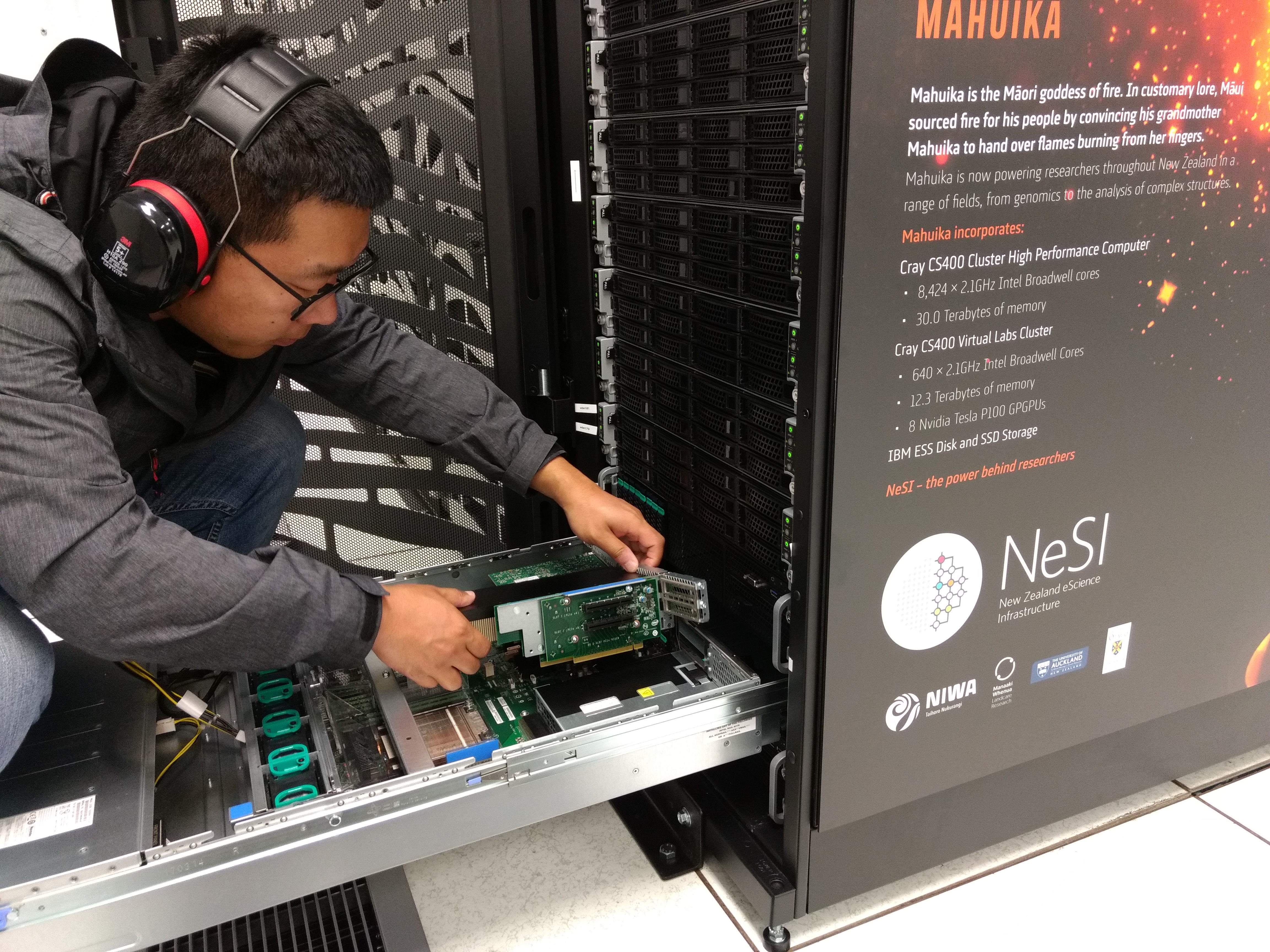Building New Zealand's data science and AI capabilities
It's a transformative time for data science and eResearch in New Zealand right now. Projects across many domains are becoming more data-intensive, and we're seeing contemporary Machine Learning and Deep Learning techniques being widely adopted.
With buzz building through initiatives like the National AI Strategy spearhead by the AI Forum and the Ministry of Business Innovation and Employment (MBIE), and new investments into groups such as PlantTech and the Waikato AI Institute, NeSI is excited to work collaboratively with these and other partners to make national data science infrastructure investments that enable researchers to stay at the top of their fields.
To start, last year we launched Jupyter Notebooks, delivering a step change in how easy it is for NeSI users to work on our HPC platform. These notebooks are particularly well suited to artificial intelligence and machine learning workloads.
Now, we’re rolling out new infrastructure to underpin data science, specifically Graphics Processing Units (GPUs). Earlier this year we installed eight NVIDIA A100 GPU cards into the Mahuika HPC system, located in the NIWA HPC facility at Greta Point Wellington.

We've spent the last couple of months working directly with research groups as part of a technology validation phase to ensure the capability is fit-for-purpose and tuned to communities' specific software and tool requirements. We’ll be moving to roll out access to wider data science users over the coming months.
We'll be sharing more of our learnings from this testing phase in the coming weeks. One key early learning was the value of Systems Engineers and Research Software Engineers working together to support researchers, given how operationally demanding the technology is to optimise and tune across hardware and software. This was particularly true as in many cases only the more recent versions of data science software were a prerequisite to take advantage of the new tensor core technology in the A100’s.
NeSI has also been doing deep dives, working with early adopter communities such as PlantTech, to tailor environments and workflows, and to assess the possible scales of public and private research sector demand to inform future investments.
Meanwhile, and stepping back a little from our own work, it was exciting to see the recent investment into an NVIDIA DGX A100 by the University of Waikato. This piece of technology aligns with NeSI’s recent investments into A100s both in terms of the hardware, but also in terms of the software which can sit on top of the hardware (e.g. Slurm, Open OnDemand, Kubernetes), ensuring that New Zealand researchers have access to a set of common platform technologies they can leverage for their Machine Learning and Artificial Intelligence applications, across a range of institutional and national infrastructures.
As is the case with many computing technologies, continued investment is required to build capability and stay abreast of ongoing evolution. With this in mind NeSI is currently finalising its next investment into advanced GPU technologies, which will see us scale-up from our initial 8 x A100 GPU card investment to enable support for a larger set of users, and to support more advanced and demanding performance needs.
In reflecting on our short journey so far, we recognise that AI adoption can take different forms dependent on the community, and so we've responded by:
expanding our team's internal expertise by hiring Dr. Maxime Rio as a Data Science Engineer, to work alongside our Research Software Engineers directly with research groups
launching new infrastructure and tools to support data analytics and machine learning
delivering more Consultancy projects integrating AI and deep learning, supporting research ranging from analysing brain signals to tracking coastal precipitation systems.
enhancing our engagement strategy around Data Science, providing new opportunities for researchers to learn about and acquire data science skills and capabilities.
As more research communities bring HPC and machine learning approaches into their research and workflows, we’re seeing communities scaling their codes, running bigger projects, and onboarding more researchers.
As we progress on this journey with our partners in the research sector, we look forward to delivering tools that respond to researcher's evolving needs, sharing our learnings as we go, and helping more research communities integrate NeSI resources and eResearch approaches into the way they work.
If you’ve an interest in learning more about NeSI current capabilities and plans in this space, we’d love to hear from you.





